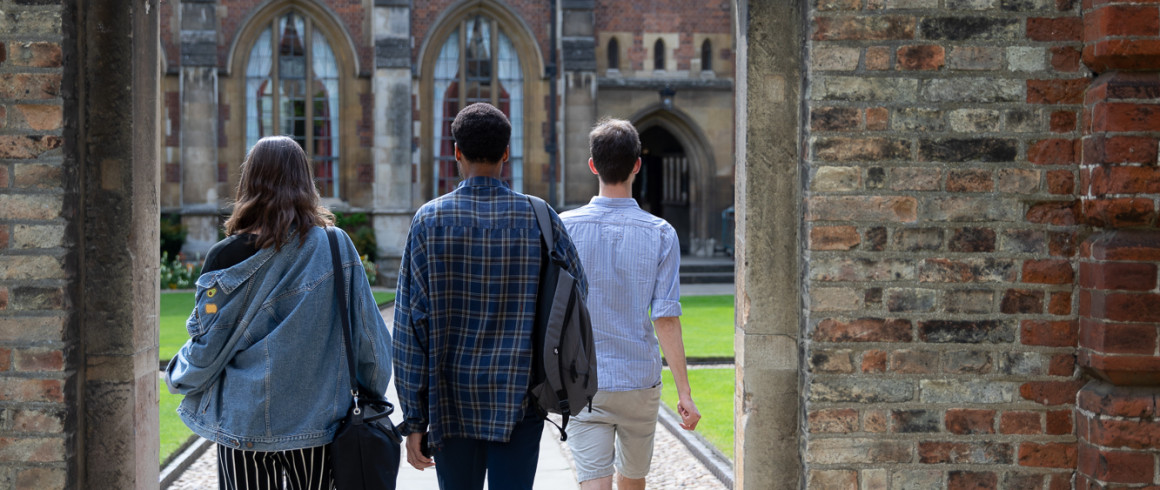Mathematics for non-A level students
Cambridge - a world university
Although Cambridge happens to be situated in the East of England, it is one of the major European universities and has a world-wide reputation in most subjects. Cambridge maintains its high academic standards by attracting good students from around the world, regardless of national or social background. Cambridge is particularly strong in mathematics, and its course is widely recognised not only as the most demanding undergraduate mathematics course available in Britain but also the most rewarding. It is both the oldest and the largest such course, having an intake of over 250 students each year.
For undergraduate admissions, Cambridge is keen to encourage all able Scottish and EU applicants. Some of Cambridge’s greatest mathematicians, such as Kelvin, Maxwell and Hodge, have come from Scotland. The advice that follows is written for candidates from non A-level educational systems thinking of reading mathematics. It complements the Cambridge Admissions Prospectus, and should be read in conjunction with it.
Who comes to Cambridge?
Despite the challenging and exhilarating nature of the course, it is not impossibly difficult to get a place. Cambridge welcomes enthusiastic students who are pretty good at maths, but nobody is expecting another Einstein. However, it is important to have a sufficient grounding in mathematics to be able to cope with the demanding first year. This can sometimes be a problem for someone taking a very broad Baccalaureate type course and we would normally expect you to have studied as much mathematics as is allowed by your school in the course that you are following. Most successful English applicants have two A-levels in Mathematics, and the minimum requirement is equivalent of A-level Mathematics plus AS level Further Mathematics.
For Scottish candidates: If your school offers more than one Advanced Higher paper in mathematics then it is very helpful preparation for the Cambridge course to take two papers. If you can only take one paper, then try and do as much pure mathematics as possible. Physics is a useful additional subject, particularly if you are not covering mechanics on your mathematics paper.
For International Baccalaureate candidates: You will need a grade 7 in Higher Level Mathematics, which is roughly equivalent to one A-level and an additional AS level in Mathematics. If you can study the Standard Level Further Mathematics, even as an optional extra, this is very useful.
For European Baccalaureate, French Baccalaureate, Abitur and other EU qualifications: You may find you need to supplement the mathematics that you are doing with some additional reading. If you are studying mathematics in a language other than English, it may be helpful to read an English A-level textbook to get used to possible differences in notation and technical terms. When you come for interview you will be expected to discuss mathematical problems in English.
STEP (Sixth Term Exam Paper)
Pembroke asks all candidates in mathematics to take STEP II and III as part of the conditional offer. STEP enables us to judge fairly candidates from very different mathematical backgrounds, and the grades that we set are flexible to reflect particular circumstances. These papers enable a student to try some less routine and more challenging problems and these are excellent preparation for the first year of the Cambridge course. You can find out more about past STEP papers from the Faculty of Mathematics’ website.
Do I have the right mathematical background?
The best way to find out is to get hold of some past STEPs and to see whether you enjoy the challenge of the questions set. If you do, then you will probably enjoy the Cambridge course. You can find out more about past STEP papers from the Faculty of Mathematics’ website.
Return to information about the Mathematics Tripos.
